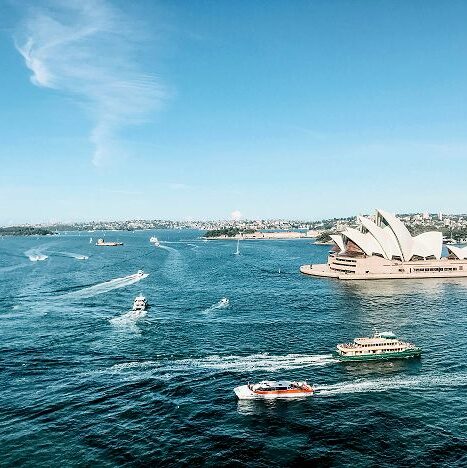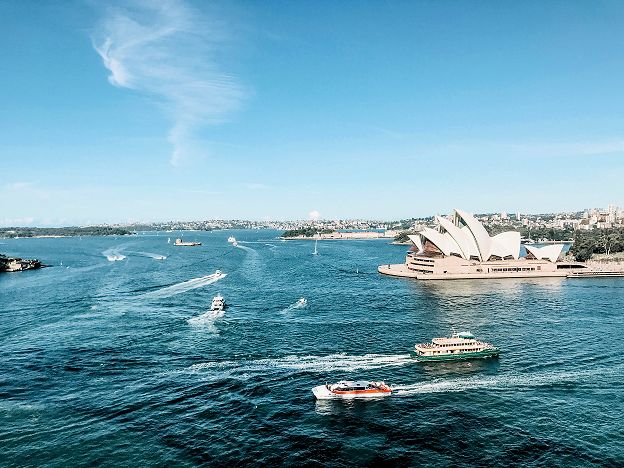
Australia day cultural considerations. An article that analyzes the story of this day, its celebrations and its up-to-date news and people complaints about it.
Happy Australia Day! Let us all take the moment and be grateful for this beautiful country. Praying for all the success and pride of our nation.
Freedom is the most precious thing in every human’s life. No one has a right to take it away, and we need to do everything to protect our society from cruelty and violence. Happy Australia Day!
Happy Australia Day my dear. Make the most of this day by not being your usual self and by being a better person to the people around you.
Let us pray for the country’s betterment and take a vow to work hard to make the nation grow. Best wishes for Australia Day.
The overwhelming majority of Australians are celebrating Australia Day like we all are here today. They are just in love with our nation, with our story, with our people, with our success – the most successful multicultural society in the world.
Prime Minister Malcolm Turnbull
We need to reflect on the history of January 26, because we cannot start to heal as a nation until we start acknowledging the past. Celebrating on a day that causes so much hurt and suffering to Aboriginal people does not unite us and doesn’t bring us together.
Greens leader Richard Di Natale
My mother used to say that there are no strangers, only friends you haven’t met yet. She’s now in a maximum security twilight home in Australia.
Dame Edna Everage
In the early 1930s, flying from England to Australia was the longest flight in the world. It was considered extremely dangerous and hazardous, pushing pilots to the limits of mechanical skills and human endurance. Aviation was young.
Mary Garden
Australia is a nation of compassion. Courage and compassion. And the third of these great values: resilience.
Kevin Rudd
Australians will never acquire a national identity until individual Australians acquire identities of their own.
Patrick White
Leaving Australia was the hardest thing I have ever done.
Barry Gibb
Don’t worry about the world coming to an end today. It is already tomorrow in Australia.
Charles M. Schulz
We were a Western civilisation, an English speaking civilisation, both NZ and Australia, and we had all these influences coming from both Great Britain and America to us; sending us their culture in the shape and form of movies and television.
Richard O’Brien
A collection of huts surrounded by a barbed wire fence, and in the huts lived 500 of the original inhabitants of our area. And so it went with many country towns around Australia.
Phillip Noyce
And I liked pluralist Australia. I got a taste for pluralist Australia. I like, I like Australians and I can’t believe that they’re going to go to hell because they tell a good dirty joke, you know.
Thomas Keneally
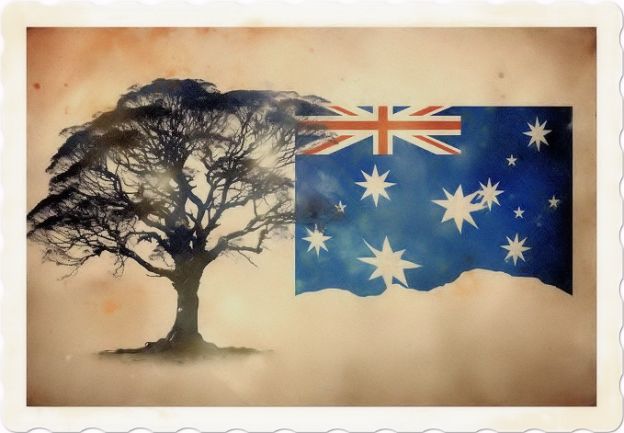
While Indigenous Australians have inhabited the continent for tens of thousands of years, and traded with nearby islanders, the first documented landing on Australia by a European was in 1606. The Dutch explorer Willem Janszoon landed on the western side of Cape York Peninsula and charted about 300 km of coastline.
Before this Europeans had long believed there was a land mass in the southern hemisphere which they called Terra Australia Incognita, meaning Unknown South Land. After Janszoon many Dutch explorers sailed along the northern, western and southern coastline.
James Cook was the first recorded explorer to land on the east coast in 1770. He had with him maps showing the north, west and south coasts based on the earlier Dutch exploration.
He mapped the coast of Australia and New Zealand and paved the way for British colonization in Oceania. In his voyages, Cook also determined there was no such thing as the mythical continent of Terra Australis said to have existed here. He also helped to dispel the idea of a Northwest Passage, which the Old Continent had been obsessed with for centuries.
And so we come to Australia Day that is the official national day of Australia and it is celebrated annually on January 26th. The day marks the anniversary of the arrival of the First Fleet of British ships at Port Jackson (now Sydney) in 1788 and the raising of the flag of Great Britain at Sydney Cove by Captain Arthur Phillip. This event marked the beginning of European settlement in Australia.
Australia Day is a public holiday across the country, and it is a day when Australians come together to celebrate their national identity and culture. The celebrations include various events such as community festivals, barbecues, fireworks, concerts, sports competitions, and citizenship ceremonies. Many people also take the opportunity to reflect on Australia’s history and the diverse cultures that make up the nation.
Obviously we have to keep in mind that “Feast days”, also known as festivals or celebrations, hold significant anthropological and social meaning across cultures. While the specific rituals, customs, and symbols associated with feast days vary widely, some common anthropological and social meanings are always the same.
They include values of cultural identity, heritage and social cohesion and must in some way or another be an occasion of cultural exchange and interaction between different communities and can contribute to the exchange of ideas, traditions, and cultural practices.
Nevertheless while Australia Day is a day of national pride for many Australians, it has also been the subject of some controversy and debate. Some Indigenous Australians refer to it as “Invasion Day” or “Survival Day,” highlighting the negative impacts of European colonization on Indigenous communities. The debate around the date continues, with calls to change it to a more inclusive day that recognizes and respects the perspectives of Indigenous Australians.
It’s worth noting that opinions on Australia Day can vary widely, and the discussion surrounding its date and significance is an ongoing dialogue in Australian society. Anyway on Australia Day we celebrate all the things we love about Australia: land, sense of fair go, lifestyle, democracy, the freedoms we enjoy but particularly our people.

Australia Day is about acknowledging the contribution every Australian makes to our contemporary and dynamic nation. From our Aboriginal and Torres Strait Islander people who have been here for more than 65,000 years, to those who have lived here for generations, to those who have come from all corners of the globe to call our country home.
The 26 January as a matter of fact remains an important date in Australia’s history that has evolved over time. Starting as a celebration for emancipated convicts, today it is a day to acknowledge past wrongs and show respect for Aboriginal and Torres Strait Islander Peoples’ survival, resilience and enduring culture.
It is also a day we pay respect to the stories, histories and contributions of the Australians who lived, worked and fought for the values and freedoms we often take for granted. And it is a day we celebrate the diversity of this nation’s people with our various cultures, traditions and belief systems.
Australia Day continues to be hugely popular, with 3 in 4 Australians believing it has a bigger meaning beyond being just a day off. More than half of all Australians participate in Australia Day attending events organised by State Governments, local councils, community groups or getting together with family and friends. In addition, over 16,000 new Australians become citizens on Australia Day.
Coming back to our famous Captain Cook we have sadly to witness that his statue and a Queen Victoria statue in this country have both been vandalised and cut down respectively on the eve of this 2024 Australia Day.
The Captain Cook statue, located in St Kilda, was sawn off at the ankles and the podium was graffitied with the words “the colony will fall”. The remnants of the century-old monument of the British explorer was laid on the grass in front of where it once stood.
Victoria Police said the incident was reported at 3.30am (local time) and “several people were seen loitering in the area around the time of the incident”. It is not the first time the statue has been attacked. In 2022, it was splashed in red paint on Australia Day in protest of January 26.
A second statue was also vandalised a short time after, closer to the CBD. The Queen Victoria monument in the Queen Victoria Gardens was splashed with red paint in an apparent move to symbolise bloodshed on January 26, 1877. Workers arrived early on Thursday morning to begin cleaning the sculpture.
Victoria Premier Jacinta Allan said the state government would also be working with the City of Port Phillip to repair and reinstate the Captain Cook statue. “This sort of vandalism has no place in our community,” she said. While opposition Leader John Pesutto described the vandalism as “totally unacceptable”.
“We support the right of people to protest and demonstrate but it must always be done in a peaceful and respectful way,” he said. Police are investigating what happened with the statues overnight and urged people with any information to come forward.
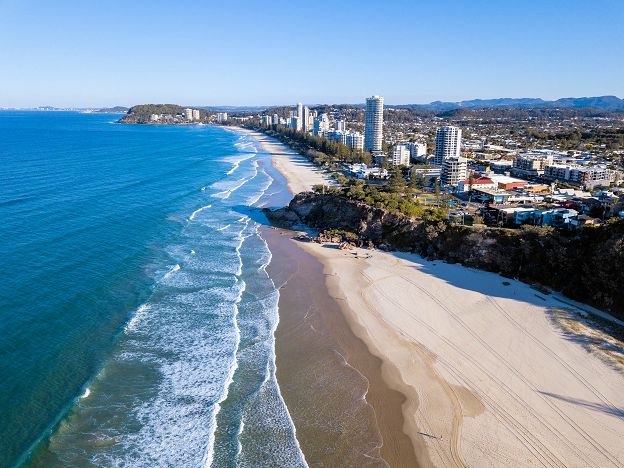
More or less the same happens in the United States during the Columbus Day celebrations that highlight the explorer’s journey and Italian-American culture. In this case the attention is increasingly shifting towards acknowledging the heritage and challenges faced by indigenous communities subjected to European settlers.
That’s how times are changing, unfortunately, since respecting history, traditions, and significant events (day feats) is important for several reasons. History and traditions contribute to the formation of individual and collective identities. They provide a sense of continuity, helping people understand who they are, where they come from, and what values are important to them.
Moreover studying history allows us to learn from past mistakes and successes. It provides valuable insights into human behavior, societal development, and the consequences of certain actions. By understanding history, we can make informed decisions in the present and future.
Until proven otherwise history remains a fundamental record of human innovation and progress. Understanding the achievements and challenges of the past can inspire creativity and innovation in the present. Many advancements build on the knowledge and experiences of those who came before us.
Acknowledging and respecting the history and traditions of different communities fosters mutual respect and understanding. It promotes tolerance and helps reduce conflicts based on cultural differences. But it is also true that while it’s important to respect history and traditions, it’s also crucial to critically examine them and be open to growth and change. Societies evolve, and it’s essential to strike a balance between preserving cultural heritage and adapting to the needs and values of the present and future.
Aborigenal culture
For people right around the world, Australia is synonymous with Aboriginal history and culture. And so it might be a little surprising to learn that Aborigines and Torres Strait Islanders make up just 2% of Australia’s population – or 353,000 people. For a people so few in number to be so well-known and appreciated internationally says a lot about the strength and vibrancy of indigenous Australian culture.
Not so well known is the fact that Australia has two very distinct native peoples. In addition to the Aborigines, who make up the majority of the indigenous population, there are the Torres Strait Islanders, who come from the lands of the Torres Strait, between the tip of Cape York in northern Australia and Papua New Guinea. Ethnically and culturally, the two populations are very different, but together form a rich part of modern Australian society.
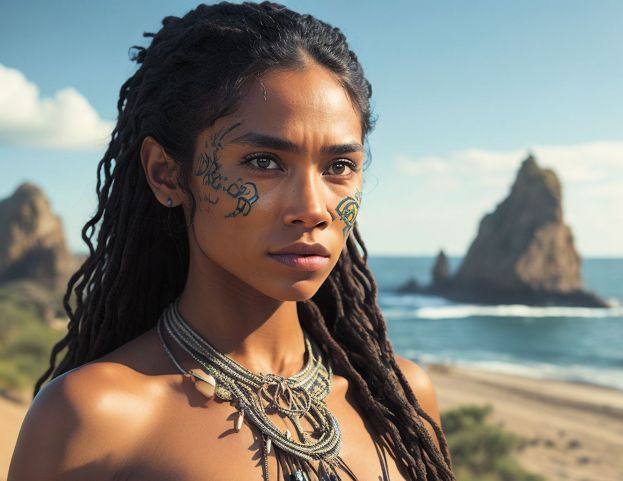
As with so many indigenous populations, the history of Aboriginal and Torres Strait Islander peoples in Australia over the past 210 years has often been a brutal and tragic one. The European colonization of Australia could have led, ultimately, to the annihilation of its original inhabitants.
Instead, Australia’s indigenous peoples have endured, overcoming a litany of wrongs to emerge as a strong and vibrant community, retaining many traditions and also making the most of new opportunities. Just twenty-five years ago, there were only seventy-five indigen.ous students in higher education institutions in Australia; today, there are more than 7,000 – an impressive achievement in the space of only one generation.
Of course, there are still many inequities to address, most visibly in the areas of indigenous health, housing and access to education. The Australian Government is working with regional governments, local communities and the elected representatives of Australia’s Aboriginal and Torres Strait Islander peoples (the Aboriginal and Torres Strait Islander Commission) to address these problems. At the same time, indigenous communities are tackling the challenge of ensuring their cultural and religious heritage is passed on to younger generations.
One of the most positive signs of a new era in relations between indigenous and non-indigenous Australians has been the creation of a new social movement, known as the “reconciliation movement”. The concept of reconciliation is a very important one for the whole country, as it aims to deal with the legacy of the past, and at the same time increase understanding and appreciation of indigenous peoples’ culture and current aspirations. On 28 May, more than 200,000 Australians walked across the Sydney Harbour Bridge, to express their support for reconciliation.
Visitors to Australia will see clear signs that indigenous cultures are making their mark nationwide. More indigenous people now live in cities and towns than in the countryside, and you can find traditional foods (known as “bush tucker”) on the menus of city cafes and restaurants; some breathtaking indigenous art in galleries; and indigenous dance companies, musical groups and theatre productions on stages around the country. The world will also get the chance to see some of Australia’s finest sportspeople competing at the Sydney Olympics in September – hopefully including indigenous athletes Cathy Freeman, Karl Vander-Kuyp, Nova Perris-Kneebone and Patrick Johnson. The Aboriginal flag will be flying proudly around the Olympic Stadium.
You can also read:

